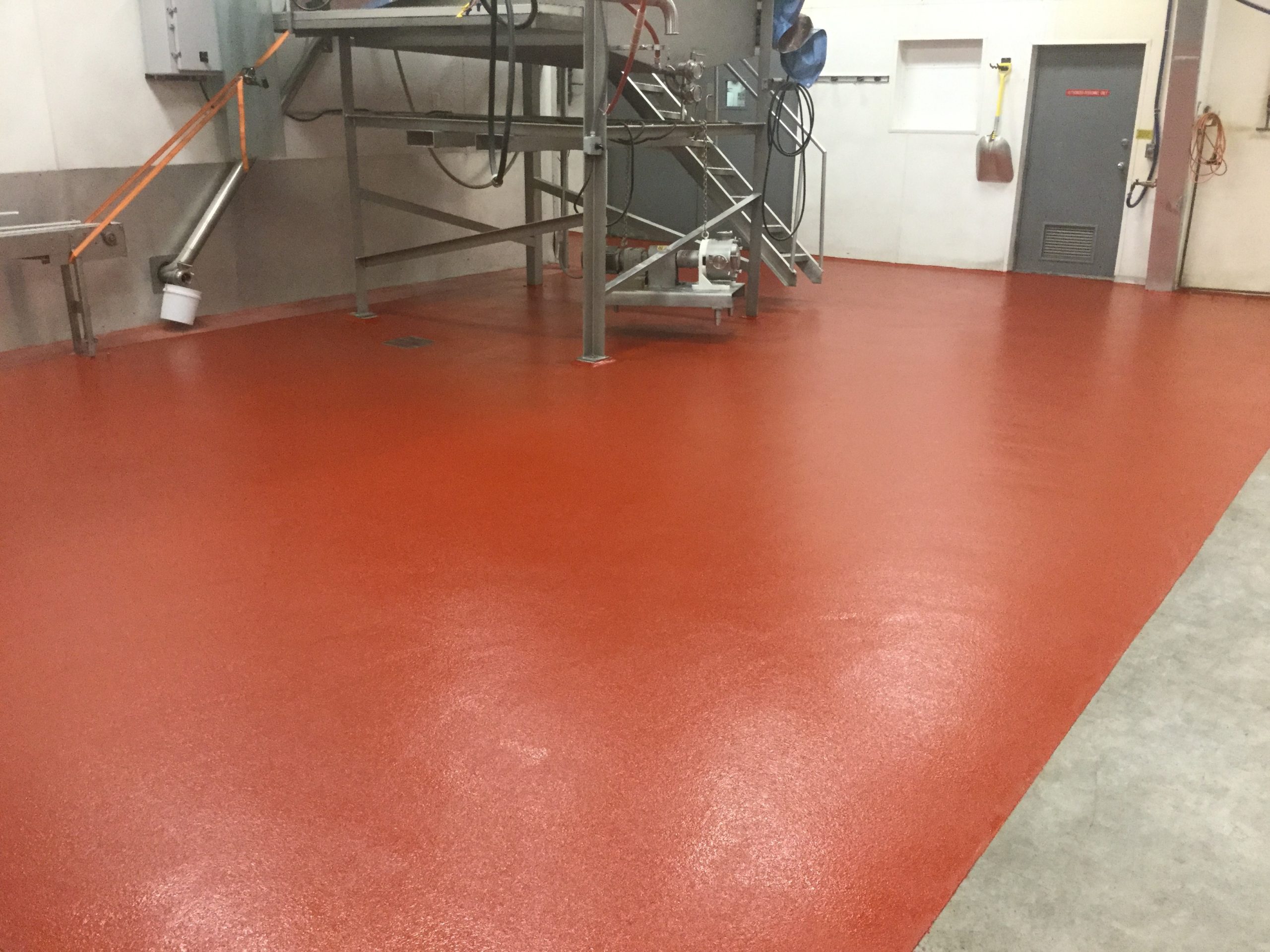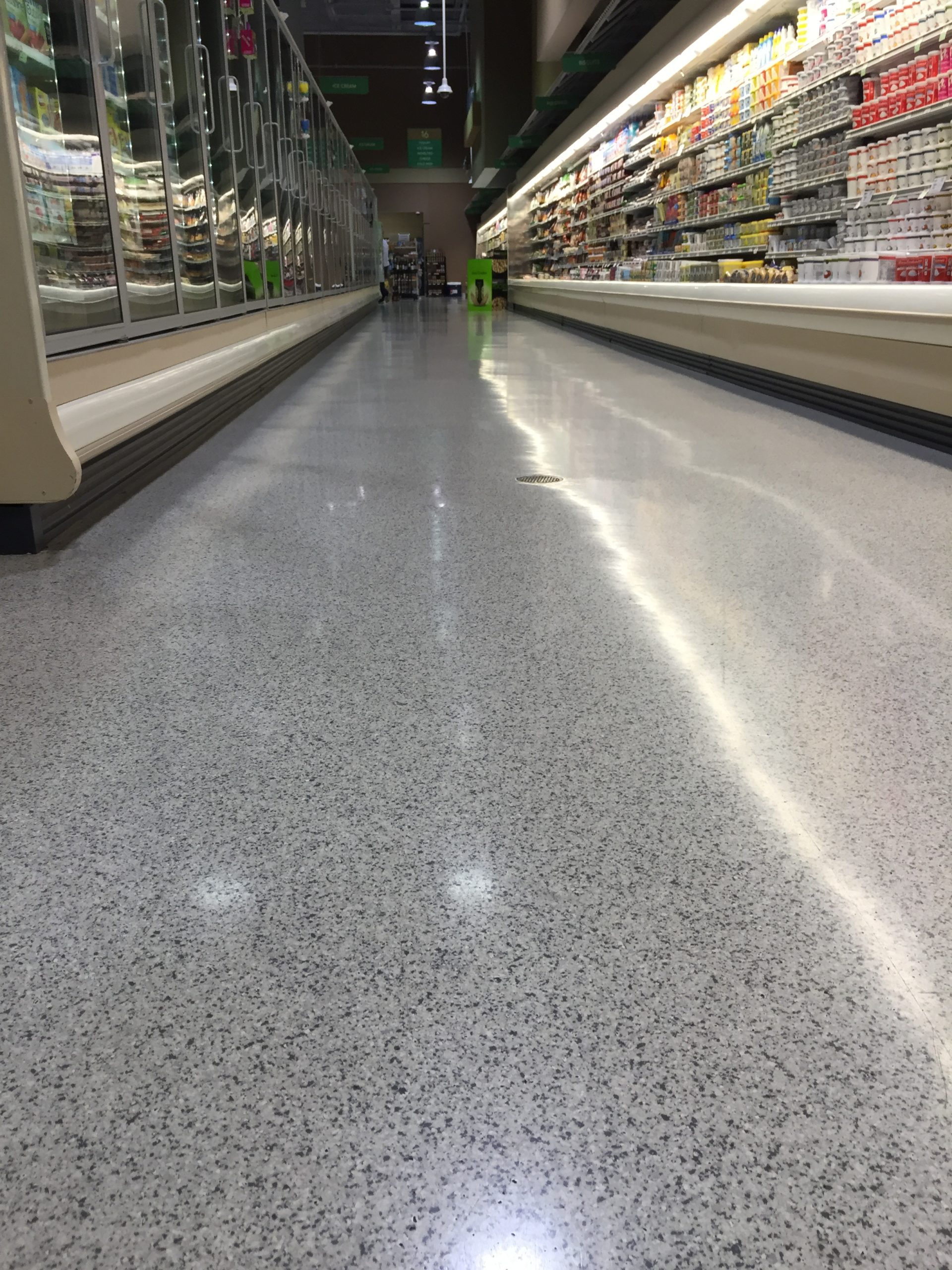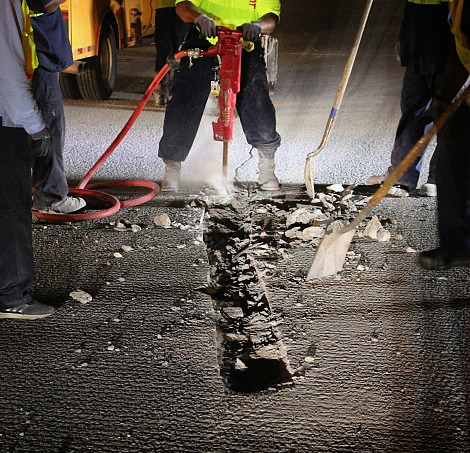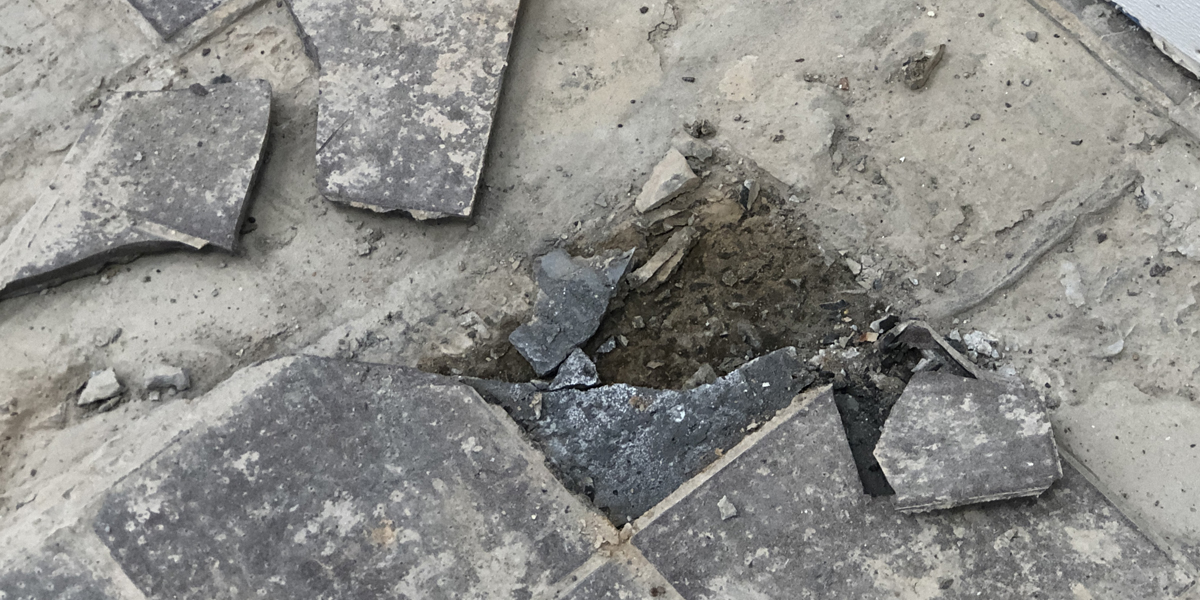So, what does epoxy flooring have to do with a band-aid?
When you ask for a tissue, you might say “Hand me a Kleenex”. When you ask for a bandage, you might say “I need a Band-Aid”. These are actually branded product names that have come to be known as the actual item they represent.
Epoxy has become the Band-Aid of commercial flooring.
People search the internet for epoxy flooring, when what they really mean is resinous flooring or fluid-applied flooring. They may not realize that epoxy is just one type of resinous flooring, but it is certainly not the only kind and not always the best solution for a project.
Most people think epoxy is “that stuff that looked great in my neighbor’s garage”, which is probably true. A lot of garages have epoxy coatings that do look great and hold up well under the conditions present in a home garage, which is minimal foot traffic, low impact and no hot liquids or harsh chemicals.

In commercial facilities however, it’s not that simple. You have to take a more holistic approach.
It’s important to take stock of what is happening in the facility where the floor will be installed. Is there hot water or grease spilling onto the floor? Is there forklift or other heavy traffic? Is there high moisture content in the concrete? There are a ton of variables that can affect which flooring system might be right for you and epoxy may or may not be the best way to go.
Epoxy flooring costs may often be lower on the front end, but if the product isn’t right for the job, costs due to recoating or replacing will be higher over the long term.
There are two flooring chemistries that have both existed in the United States for over 15 years but are rarely specified relative to their epoxy counterparts.
Urethane cements and methyl methacrylate (MMA) have long been established as viable resinous flooring solutions for a variety of challenges.
Let’s take a look at both.

Urethane cements are the best solution for resisting thermal shock from steam, grease, and other hot contaminants. It’s also one of the toughest systems around and can be laid as thick as 1/4”. It’s slip resistant and seamless, so you can clean it and sanitize it as often as needed.
MMA flooring cures quickly and bonds better than anything else on the market. It also can be repaired easily and has the ability to accept a fresh topcoat at any future time without requiring any mechanical preparation.
The icing on the cake is that by partnering with a manufacturer who specializes in several flooring chemistries, there are endless combinations of solutions that can be customized to achieve the perfect system for your facility.
So, don’t force a square peg into a round hole. Every construction project is unique and has certain needs that cannot always be solved by only specifying one flooring chemistry. Take the time to talk to a specialist who can help you get it just right.
Res-Tek offers all of the above and more, so you can check out our MMA acrylic flooring, urethane cement, and epoxy flooring online before making any decisions. Give us a call and we’ll work with you to finalize the best system for your project.






